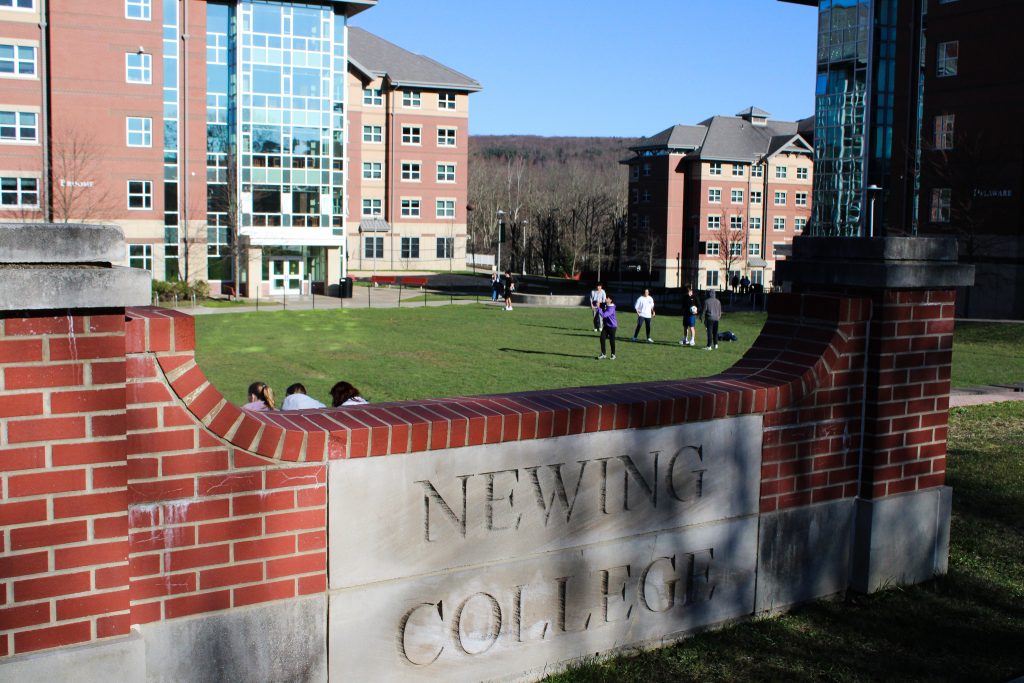Zero Hour, an on-campus environmental justice organization, has started a petition against a project converting the grass field in front of Newing College to artificial turf.
Turf replaced the grass in both College-in-the-Woods and Dickinson Community last summer as part of a five-year plan to improve campus facilities. With construction on Newing’s field expected to begin this summer, Zero Hour initiated an effort to inform students and encourage Binghamton University administrators to abandon the project, emphasizing its potential negative environmental impacts.
“Turf fields have a variety of health, safety and environmental concerns,” Zero Hour’s Executive Board wrote. “Students have voiced their concerns about the conversion of more co-Rec fields to turf, especially because they aren’t necessary … Additionally, converting this field to turf and maintaining it would cost approximately $800,000 more than just continuing to maintain the grass field.”
The petition says that since turf is made of plastic and can be easily broken, eight percent may be lost yearly. This annual loss could release 3,200 pounds of microplastics into the atmosphere, which can spread throughout the air, soil and water, as well as being inhaled by campus community members. It mentions how the latex in the turf could prevent students with allergies from using the field, and turf burn could cause infection.
The organization also highlighted the planned renovation’s cost. Because some artificial turf fields have a 10-year lifespan, their continued maintenance could cost around $1 million per field — funds they argue could be better allocated. They say grass field maintenance is significantly less than turf, which could save the University millions of dollars.
In a statement to Pipe Dream, Ryan Yarosh ‘02, MPA ‘09, the University’s senior director of media and public relations, said the fields have positively impacted campus life and that the University would continue renovations.
“The field projects in [College-in-the-Woods] and Dickinson [Community] allowed us to resolve drainage issues and increase the usability of the fields to the full calendar year in both communities,” Yarosh wrote in an email. “It has been exciting to see these areas come alive with activity, and we look forward to providing similar updates to each of the residential community spaces going forward.”
Zero Hour, founded in the fall of 2019, often works with organizers in the Vestal, Johnson City and Binghamton areas to advocate for action on the climate crisis. The petition, which can be found on their Instagram, has reached 257 signatures out of their 500 signature goal as of April 8.
“These fields are unsafe, uncomfortable and frankly a waste of money,” it reads. “We unfortunately already have two, but there’s still a chance to preserve some dignity and save [Newing] from this carcinogenic eyesore. Say NO to constructing another turf field. It is on us to hold [the] University accountable for its harmful actions!”
Editor’s Note (4/9/24): This article has been edited to reflect that the first quote was provided by the entire Zero Hour E-Board.



